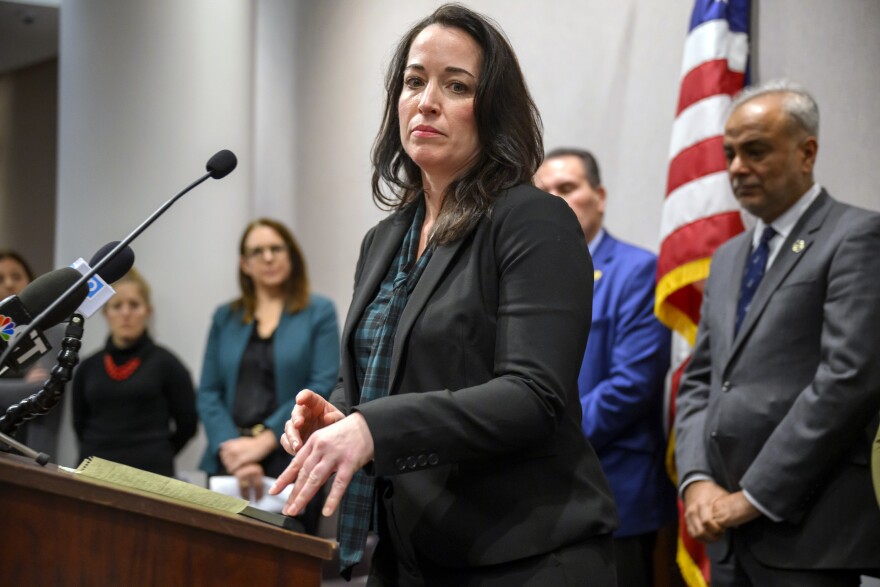Connecticut’s homeless services providers are already considering the state’s needs and preparing requests for the next legislative session.
While a potential special session this fall is still looming, providers, such as the Connecticut Coalition to End Homelessness (CCEH), are looking toward 2026.
Many of the changes in laws and funding requests being eyed are the same as recent years, according to CCEH, Chief Executive Director Sarah Fox. The intensity and tone has shifted on the federal level, with the Supreme Court recently criminalizing sleeping outdoors and a general hostile attitude toward the unhoused, Fox said.
“The arc of the story is the same and we’re just dealing with a different sort of federal narrative,” Fox said. “But we still have all of these same elements. We want to prevent homelessness before it begins. We want more funding there. We need a strong crisis response and we need to house people.”
Fox gathered recently with other homeless services providers to work through the industry’s possible legislative priorities for 2026. The legislative agenda includes another push to expand Connecticut’s Just Cause Eviction Law to prevent faultless evictions.

Advocates also want to strengthen laws to ensure homelessness isn’t criminalized and boost funding not only for affordable housing developments, but for extreme weather situations, to keep people in shelter during heat waves and cold snaps.
Homeless service providers and shelters in the Hartford area’s Coordinated Access Network outlined their goals for next year.
They want to tackle rent increases, and automatically make increases over 10% eligible for referrals to the local Fair Rent Commission if the building’s ownership changed hands in the last year. Another push would limit upfront rental costs to one month’s rent and a security deposit, a move that gained some support during this year’s legislative session.
Providers also plan to work on addressing unsheltered homelessness, according to Sarah Pavone, director of strategy for Journey Home, a homeless shelter and outreach group.
“We need to focus on visibly unsheltered, to kind of get proof points to have continued advocacy and funding support from our community and not just our legislators,” Pavone said. “Changing community members’ thoughts toward and understanding of unsheltered homelessness can be key in getting legislative support as well.”
“Without community backing our legislators are gonna be hard pressed to make the vote even if they agree with us in the back room,” Pavone said.


